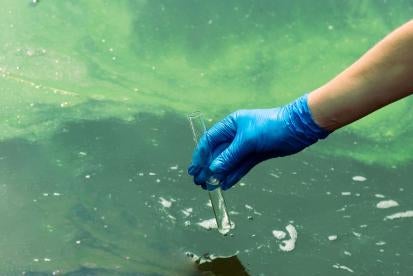On July 20, 2022, in Naturaland Trust v. Dakota Finance, LLC, No. 21-1517, a split Fourth Circuit panel held that a state agency’s notice of violation did not “commence an action” within the meaning of 33 U.S.C. § 1319(g)(6)(A)(ii). That provision states that a Clean Water Act violation “shall not be the subject of” a citizen suit for civil penalties if a state “has commenced and is diligently prosecuting” an action with respect to the violation “under a State law comparable to” the Clean Water Act. The court also held that this provision is not jurisdictional.
Factual and Procedural Background
The alleged violation stemmed from a land-clearing project on farmland surrounded by three bodies of water. The landowners did not obtain any permits or install sediment or stormwater control measures before beginning work.
In September 2019, the South Carolina Department of Health and Environmental Control (DHEC) sent the landowners a “Notice of Alleged Violation/Notice of Enforcement Conference” and invited them to participate in a voluntary “informal” enforcement conference.
In April 2020, two citizen groups sued the landowners in federal court under 33 U.S.C. § 1365(a)(1), alleging violations of the Clean Water Act. They sought injunctive relief and civil penalties.
In May 2020, the landowners and DHEC entered into a consent order to resolve the Notice of Alleged Violation. The order imposed a $6,000 penalty and required the landowners to obtain an NPDES permit, submit stormwater and site stabilization plans, conduct a stream assessment, and perform any recommended remediation.
The landowners then moved to dismiss the federal lawsuit for lack of subject matter jurisdiction on several grounds. Relevant here, the landowners argued, and the district court agreed, that DHEC’s Notice of Alleged Violation commenced an action, which DHEC was diligently prosecuting, and that the state statute was comparable to the Clean Water Act. As a result, the district court found that § 1319(g)(6)(A)(ii) barred the citizen groups’ claim for civil penalties.
The Fourth Circuit Opinion
The plaintiffs appealed. In a 2-1 decision, the Fourth Circuit reversed the district court’s decision.
First, the majority (Judges Heytens and Motz) found that Fourth Circuit precedent treating § 1319(g)(6)(A)(ii) as jurisdictional “is untenable given the Supreme Court’s current approach,” which focuses on whether there is any “clear indication” that Congress wanted a rule to be jurisdictional. The majority reasoned that the provision—“which merely prohibits certain violations from being ‘the subject of a civil penalty action’”—“is not clearly labeled jurisdictional” and “is not located in a jurisdiction-granting provision.” The majority also reasoned that there is no indication that § 1319(g)(6)(A)(ii) “is meant to govern the court’s adjudicatory capacity.” Thus, according to the majority, this provision “does not implicate an Article III court’s subject matter jurisdiction.”
Second, the majority held that DHEC’s Notice of Alleged Violation did not “commence an action that was comparable to one brought under federal law.” The majority found the “essential character of an action”—an “adversarial proceeding initiated by a formal, public document”—lacking in the Notice of Alleged Violation, in part because the notice “mentioned no penalties or sanctions that would flow specifically from the failure to attend” the voluntary enforcement conference. Moreover, because the state law does not provide for public participation or judicial review until after the consent order has been entered, those features, which make the state law “comparable” to the Clean Water Act, “were not yet available at the time [the federal citizen suit] was filed.”
Thus, “[a]lthough the notice may have been an important and even necessary step in [DHEC’s] process,” the majority held that it “did not ‘commence an action within the common understanding of those terms.”
Judge Quattlebaum dissented. “By permitting the citizen suit here to proceed despite the measures South Carolina had already taken, the majority’s decision elevates citizen suits above their supplemental role.” He noted that Congress did not define “commence” in the Clean Water Act, and that under the ordinary meaning, “what DHEC did meets the definition of commencing an action,” because a Notice of Alleged Violation is “the first step the agency takes in enforcing its environmental laws.” Judge Quattlebaum also disagreed with the majority’s characterization of the Notice of Alleged Violation as “informal,” and criticized the majority for conflating the “commencement” analysis with the “comparability” analysis. “[W]hile a comparison of the state and federal systems’ public notice features is appropriate in examining whether the state law is comparable to § 1319(g),” that comparison “has no bearing” on whether the Notice of Alleged Violation “commenced the proceedings.”
This decision follows a trend of federal courts tightening jurisdictional and procedural defenses available under environmental statutes, thus allowing citizen suits to proceed even where government enforcement actions are already underway.
It is yet unknown whether the defendants will petition for rehearing or rehearing en banc.





 i
i


